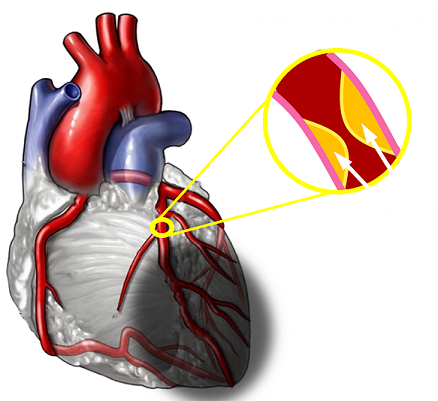Coronary artery disease (CAD) is a condition that occurs when the arteries that supply blood to the heart become narrow or blocked due to the buildup of plaque. Several risk factors can increase the likelihood of developing CAD. Here are some of the top risk factors:
- Age: The risk of CAD increases with age, particularly in men over the age of 45 and women over the age of 55.
- Family history: Having a close relative, such as a parent or sibling, with a history of CAD increases your risk. This suggests a possible genetic predisposition to the disease.
- Smoking: Smoking or exposure to secondhand smoke damages the blood vessels and accelerates the formation of plaque, significantly increasing the risk of CAD.
- High blood pressure: Hypertension, or high blood pressure, strains the arteries and forces the heart to work harder, increasing the risk of CAD.
- High cholesterol levels: Elevated levels of LDL (low-density lipoprotein) cholesterol, also known as "bad" cholesterol, can lead to the formation of plaque in the arteries, narrowing them and restricting blood flow to the heart.
- Diabetes: People with diabetes, especially type 2 diabetes, have an increased risk of developing CAD. High blood sugar levels can damage blood vessels and promote the formation of plaque.
- Obesity: Excessive body weight, particularly excess abdominal fat, is associated with an increased risk of CAD. Obesity often coexists with other risk factors such as high blood pressure, high cholesterol, and diabetes.
- Physical inactivity: Leading a sedentary lifestyle and lack of regular exercise contribute to the development of CAD. Regular physical activity helps maintain cardiovascular health and reduces the risk of plaque formation.
- Unhealthy diet: A diet high in saturated and trans fats, cholesterol, sodium, and refined carbohydrates increases the risk of CAD. Consuming fruits, vegetables, whole grains, lean proteins, and healthy fats can help lower the risk.
- Stress: Chronic stress or intense and prolonged emotional stress can contribute to the development of CAD. Stress may indirectly affect other risk factors such as blood pressure and smoking habits.
It's important to note that having one or more of these risk factors doesn't necessarily mean a person will develop CAD. However, minimizing these risk factors through lifestyle changes and medical interventions can significantly reduce the chances of developing the disease. If you have concerns about your risk of CAD, it's recommended to consult with a healthcare professional for personalized advice and guidance.


